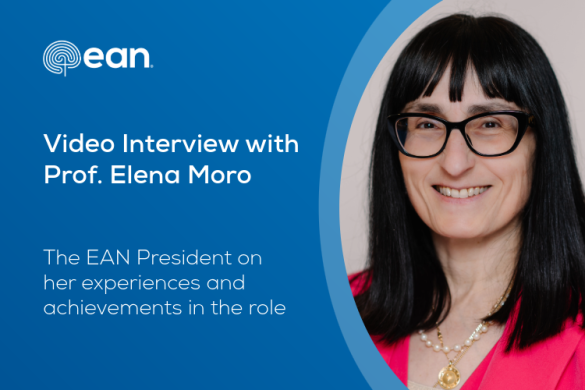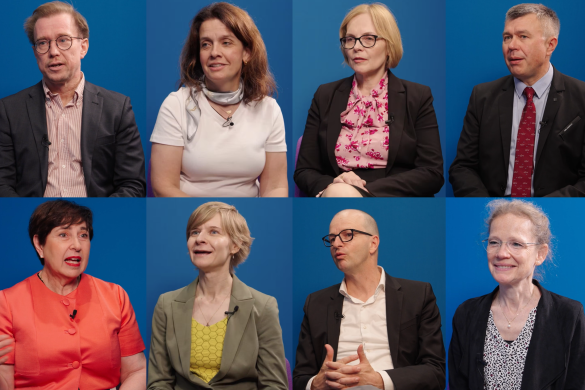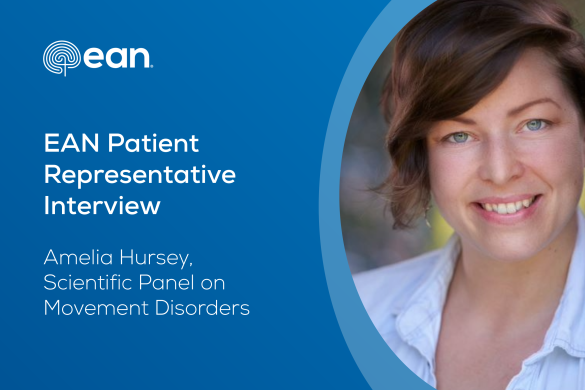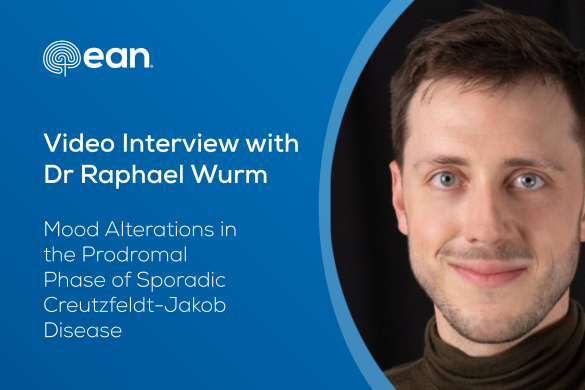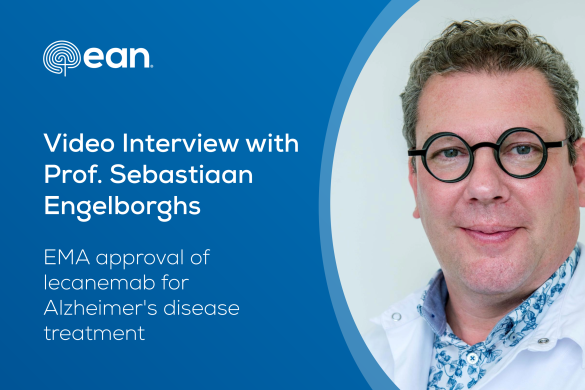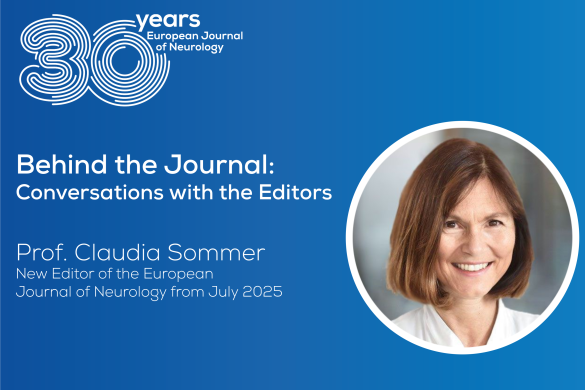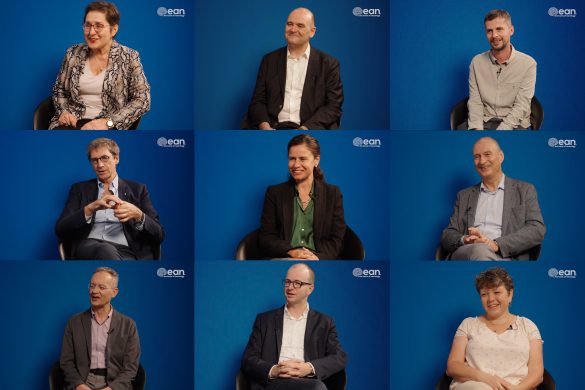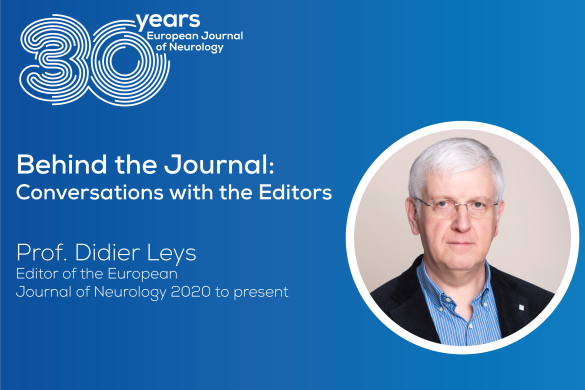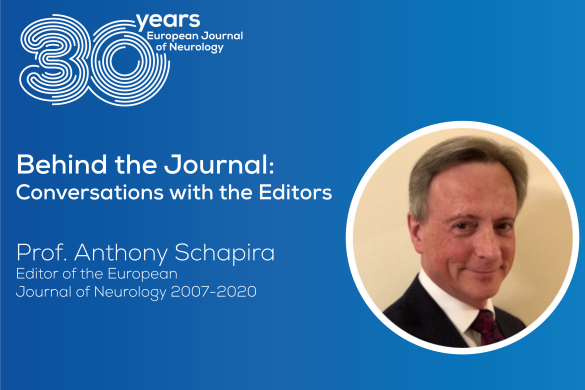 Mr Jean Georges is Executive Director of Alzheimer Europe in Louxembourg
Mr Jean Georges is Executive Director of Alzheimer Europe in Louxembourg
… The number of people living with dementia worldwide is currently estimated at 35.6 million. This number will double by 2030 and more than triple by 2050. Dementia is overwhelming not only for the people who have it, but also for their caregivers and families. There is lack of awareness and understanding of dementia in most countries, resulting in stigmatization, barriers to diagnosis and care, and impacting caregivers, families and societies physically, psychologically and economically.
WHO – Dementia: a public health priority
Gian Luigi Lenzi (GLL): How do you see the role of patient and carers organisations in society, and, specifically, Alzheimer Europe?
Jean Georges (JG): Most Alzheimer associations were initially set up for three principal reasons: to provide information on Alzheimer’s disease and other forms of dementia, to provide support to people with dementia and their carers and to raise the awareness of the general public. Since the early days of the Alzheimer movement, some associations have taken on additional tasks such as lobbying governments for a greater recognition of dementia as a public health priority or funding dementia research.
In some countries, associations have further developed and provide a great range of services, such as day care, home care or even residential care for people affected by dementia.
Alzheimer Europe was initially set up to provide opportunities to these national Alzheimer associations to exchange information on activities, initiatives and projects and to learn from the good and best practices in other countries. Over the years, the organisation has taken on a more active role in campaigning to have dementia recognised as a European priority and has worked with the European Parliament and Commission towards achieving this goal.
GLL: The number of people with dementia is steadily increasing. Alzheimer Europe is aware that careful planning for the future is needed now to ensure that the right care and support is available. How can Alzheimer Europe contribute to this planning?
JG: Alzheimer Europe estimates that there are currently 8.7 million EU citizens who live with a form of dementia. In addition, family members are affected by the disease and it is estimated that over 30 million Europeans have first-hand experience of Alzheimer’s disease or another form of dementia. Due to the ageing of European populations, these numbers are expected to double by 2050.
AE and its member organisations have therefore campaigned for the development of national dementia strategies, as well as greater collaboration between countries at an EU level. One of the slogans used by Alzheimer associations is: “Care today, cure tomorrow”, The organisation calls for increased funding for dementia research and greater coordination between national research efforts. In addition, greater efforts need to be undertaken to support people currently living with the disease as well as their carers and Alzheimer Europe encourages national health and social ministries to exchange good practices in order to promote the quality of people affected by dementia.
GLL: EAN wants to strengthen its work with patient as well as carers’ organisations and with Alzheimer Europe in particular. What are your suggestions for this cooperation?
JG: Alzheimer Europe is happy to collaborate with other organisations with an interest in dementia and would be delighted to develop closer ties with EAN. I am sure that our organisations share a number of priorities. The timely diagnosis of people with dementia, the training of medical professionals involved in the diagnosis and treatment of dementia or the funding of dementia research are all issues which would be interest to both organisations. We would also hope that EAN supports our Glasgow Declaration in which we call upon the European institutions to develop a truly European dementia strategy.
GLL: EAN wants to be the overall umbrella for neurology and neurology related specialties. How can Alzheimer Europe be of added value to the work of the EAN Subspecialty Scientific Panel “Dementia and cognitive disorders” chaired by Profs. J. Hort and R. Schmidt?
JG: In the past, Alzheimer Europe contributed to the development of EFNS guidelines for the diagnosis and management of dementia. The organisation is also involved in a number of research projects. In these initiatives, Alzheimer Europe ensured that the views of people with dementia and their carers are represented in the development of the research questions and methodology. Important questions such as the disclosure of a diagnosis of dementia or ethical issues such as genetic testing or informed consent are all areas where Alzheimer Europe can provide the perspectives and experiences of people with dementia and their carers. The organisation would therefore happily contribute to the work of the EAN Dementia Panel.
GLL: Can you share with our readers your vision on how Neuropenews can help Alzheimer Europe in its work?
JG: One of Alzheimer Europe’s key campaign in 2015 will be on the Glasgow Declaration in which we call on the European institutions to develop a European dementia strategy. The full text of the declaration is available on the Alzheimer Europe website and we are hoping that readers of Neuropenews will support our call and sign the declaration. The online signature form will open in February 2015.
GLL: Thank you for your time





